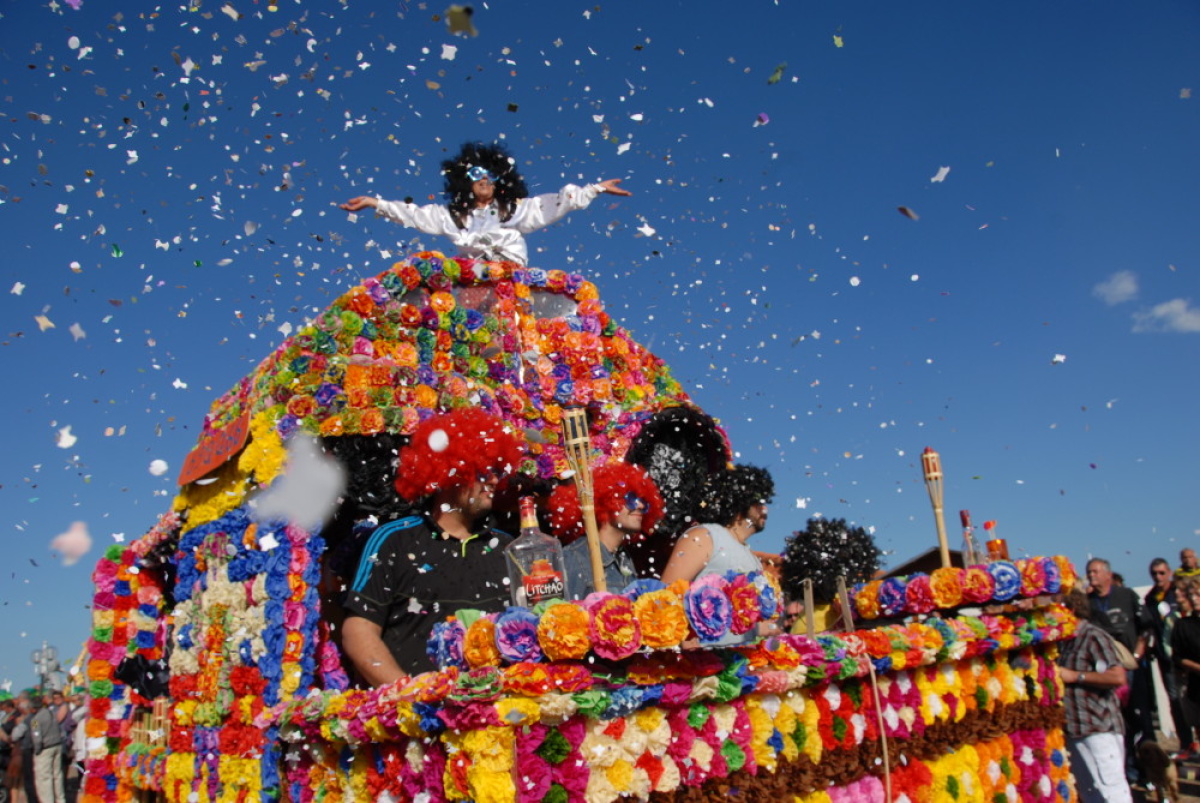with Gill Williams
English folk customs included the fun of Shrove Tuesday, with pancakes and pancake races, where people had a last blow-out before the hardest part of winter, when food supplies were falling short and meat was almost unobtainable during Lent.

In the Mediterranean south of Europe, by Shrove Tuesday winter was on its way but the period of Lenten penitence, with fasting and fish eating was still observed before Easter, starting on Ash Wednesday. Beforehand, however, the towns and villages had “Carnaval” (which comes from the Latin for farewell to meat).
A 16th Century poet, Joachim du Bellay, wrote this charming little sonnet, celebrating the fun of Shrove Tuesday and Carnival
Carnival Time
Original French |
English |
| Voici le Carnaval, menons chacun la sienne, | Carnival time, let’s go with our lady love |
| Allons baller en masque, allons nous pourmener*, | And dance in masks,and go and walk about, |
| Allons voir Marc-Antoine, ou Zany bouffonner | Or go and see Mark Anthony or Zany** clowning |
| Avec son Magnifique a la Vénitienne : | As a Venetian Magnifico |
| Voyons courir le pal a la mode ancienne, | Let’s see them running with banners in the old way |
| Et voyons par le nez le sot buffle mener : | And see the foolish ox led by the nose |
| Voyons le fier taureau d’armes environner, | The proud bull hemmed in by weapons |
| Et voyons au combat l’adresse italienne : | And watch them fencing in the Italian way: |
| Voyons d’œufs parfumes un orage grêler, | See a hail storm of scented eggs |
| Et la fusée ardent’ siffler menu par l’air | And flaming rocket whistle through the air, |
| Sus donc, dépêchons nous, voici la pardonnance. | Hurry up, and go to see the pardoning. |
| Il nous faudra demain visiter les saints lieux ; | Tomorrow, we must go to visit the holy places. |
| La nous ferons l’amour, mais ce sera des yeux, | There we will make love, but only with our eyes, |
| Car passer plus avant c’est contre l’ordannance. | Because to go further is against the rules. |
* promener
** A name for a Clown, from the Italian tradition of Carnaval
Joachim du Bellay (1522-1560) has much the same position in French poetry as Sir Philip Sidney has in English. He was a leader of the innovative group “La Pleiade” with Ronsard, and developed the sonnet from its Italian originals as Sidney took it on from the French. He wrote La Defense et Illustration de la Langue Française which dealt with similar ideas to Sidney’s The Apologie for Poetrie (1580), bringing poetry into the 16th century. Here he writes about the commonplaces of everyday life rather than the chivalrous or courtly.

